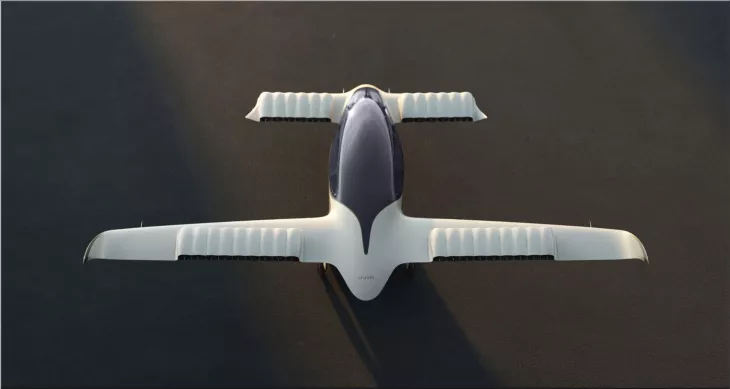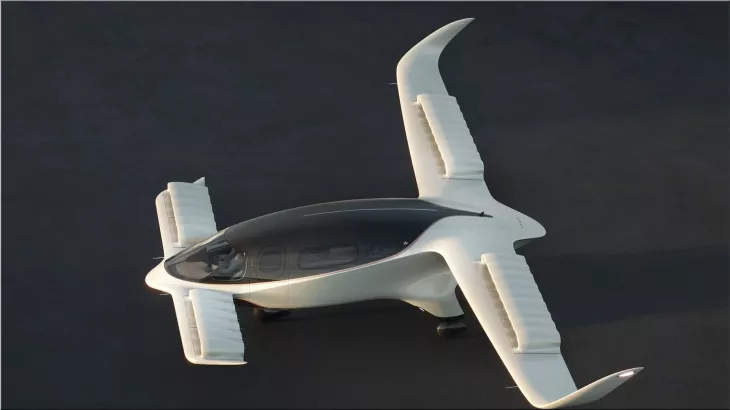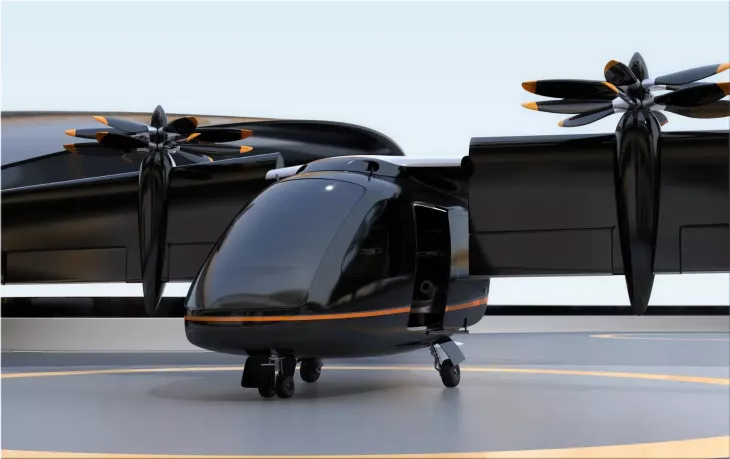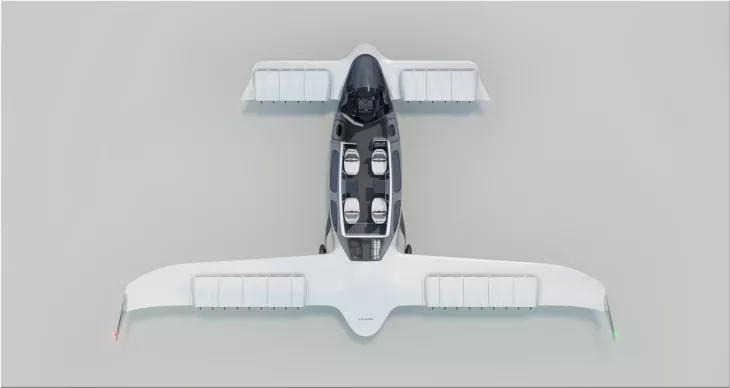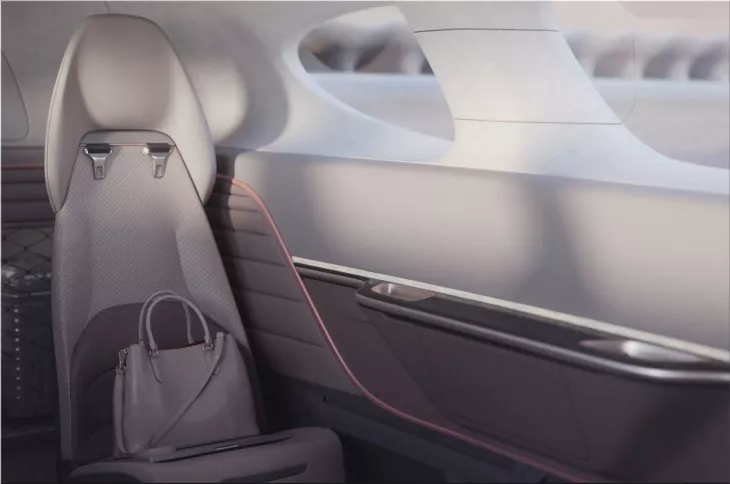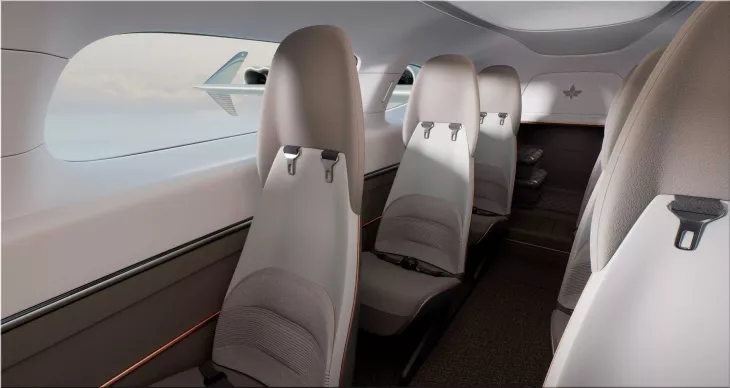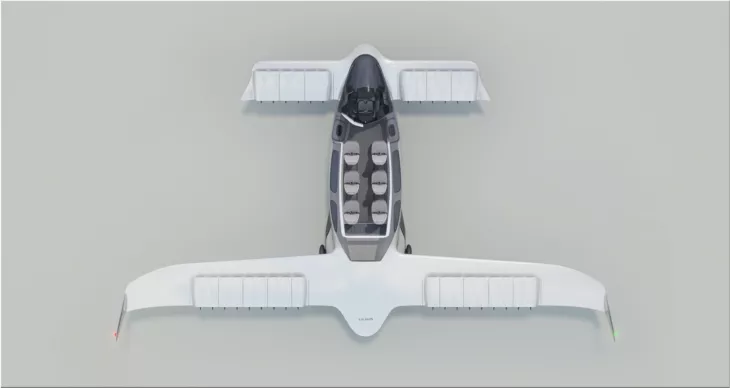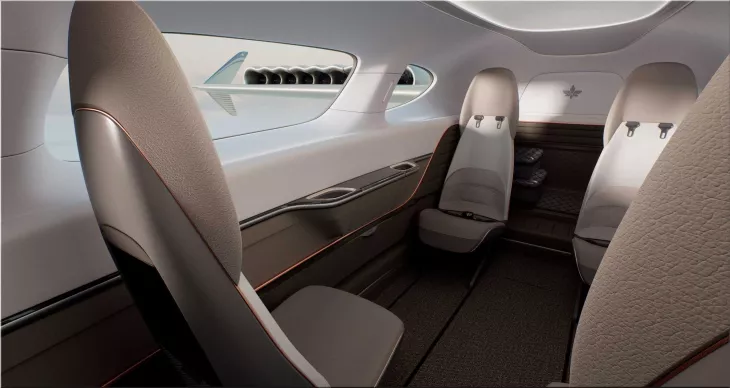What if you could travel from one city to another in minutes without dealing with traffic jams, airport security, or carbon emissions? What if you could enjoy the convenience, comfort, and sustainability of electric mobility in the air?
This is the vision of Lilium, a German company developing the Lilium Jet, an electric vertical take-off and landing (eVTOL) aircraft that aims to revolutionize urban and regional transportation. The Lilium Jet is a fixed-wing electric aircraft that can take off and land vertically like a helicopter but fly horizontally like a plane. It has 36 electric ducted fans that provide lift and thrust and can tilt to transition from vertical to horizontal flight.
The Lilium Jet is designed to carry six passengers and one pilot and has a range of 280 km (174 miles) and a top speed of 300 km/h (186 mph). It is powered by a 1 MW (1,300 hp) lithium-ion battery that can be recharged in less than an hour. The electric aircraft is also very quiet, producing only 60 decibels at 100 meters (328 feet) altitude, which is comparable to a normal conversation.
Lilium's goal is to create a network of vertiports, or landing pads, where customers can book a ride on the Lilium Jet using a smartphone app. The company claims that the service will be affordable and accessible, with prices comparable to a taxi ride. For example, a flight from Manhattan to JFK Airport would take only six minutes and cost $70, while a flight from Munich to Zurich would take one hour and cost $330.
Lilium believes that its eVTOL technology has many advantages over conventional modes of transportation:
- It can reduce travel time and emissions by avoiding road congestion and using clean energy.
- It can improve safety and reliability by using redundant systems and avoiding bad weather.
- It can increase accessibility and connectivity by reaching remote areas and creating new routes.
Lilium is not the only company working on eVTOL aircraft. There are more than 200 projects worldwide, including Uber Elevate, Volocopter, Joby Aviation, and EHang. However, Lilium claims that its eVTOL design is superior to others because it combines the efficiency of fixed-wing aerodynamics with vertical take-off and landing flexibility. Lilium also says that its eVTOL has more passenger capacity, range, speed, and payload than its competitors.
Lilium was founded in 2015 by four Technical University of Munich engineers. The company has raised over $375 million from investors such as Tencent, Atomico, LGT Group, and Baillie Gifford. Lilium has also partnered with leading aerospace companies such as Honeywell, Aciturri, Toray Industries, Lufthansa Aviation Training, and Ferrovial.
Lilium has already flown two prototypes of its eVTOL aircraft. The first one was a two-seater that flew in 2017. The second one was a five-seater that flew in 2019. However, both prototypes were destroyed by fire during maintenance. Lilium is now working on a seven-seater version that is expected to fly soon. The company plans to launch its commercial service in 2025 in several cities around the world.
Lilium's vision of electric flying cars may seem futuristic, but it is closer to reality than you think. The Lilium Jet is an innovative eVTOL aircraft that promises to change how we travel by offering fast, convenient, and sustainable mobility in the air. If you want to experience the thrill of flying in a Lilium Jet, you may not have to wait too long.





